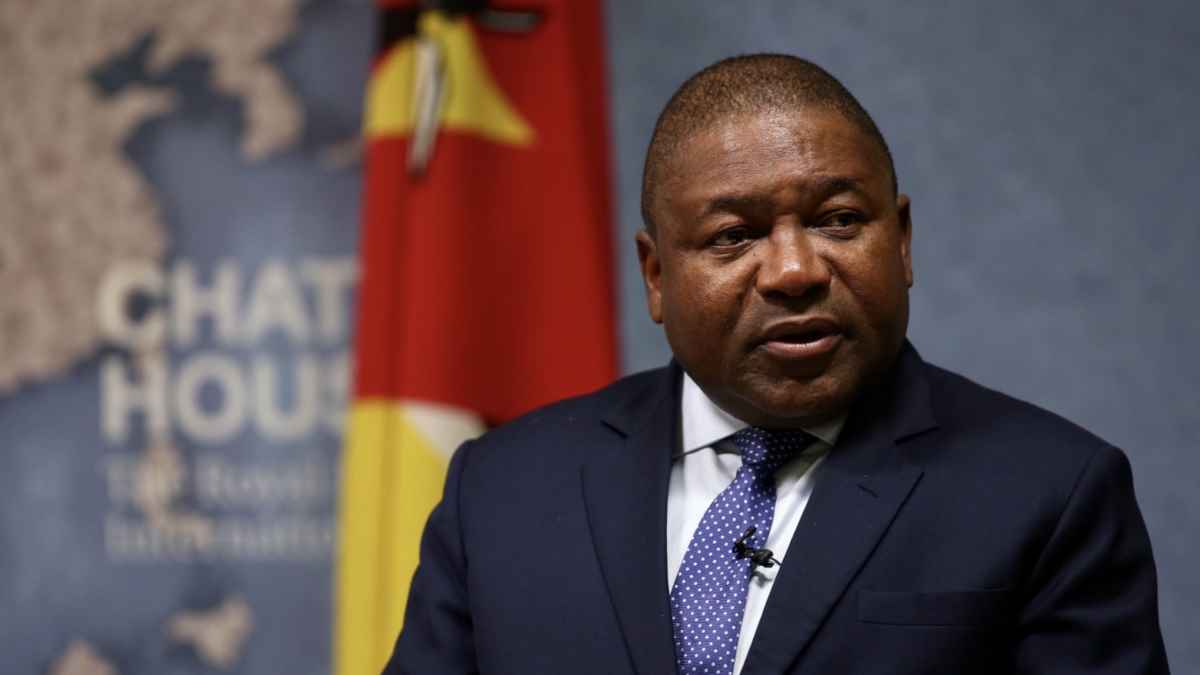Marking his return to the African Energy Week conference in Cape Town, Mozambique’s President Filipe Nyusi will once again address delegates at the important gathering, engaging with the respective Presidents of Namibia, Uganda and Senegal and the former President of Nigeria as they chart a pathway towards a sustainable energy future
JOHANNESBURG, South Africa, October 8, 2023/APO Group/ —
Mozambique’s President Filipe Nyusi has been at the forefront of a series of industry-advancing developments in the country. Under his leadership, the country has seen noteworthy success across its energy sector, with a strong slate of foreign companies driving several large-scale projects in close collaboration with the National Oil Company Empresa Nacional de Hidrocarbonetos (ENH). Under efforts to drive the southern African region into a new era of security, President Nyusi continues to showcase resilience and a commitment to a just and inclusive energy transition in Africa.
In line with the event mandate to make energy poverty history by 2030, the African Energy Chamber (AEC) is proud to announce that President Nyusi will once again address delegates at the African Energy Week (AEW) conference in Cape Town. Taking place from October 16-20, President Nyusi’s address marks his return to this highly important event. President Nyusi joins regional Presidents in Cape Town to discuss the pathway towards a sustainable and secure energy future in Africa, including Senegalese President Macky Sall; Namibian President Hage Geingob; Ugandan President Yoweri Museveni; and Nigeria’s former President Olusegun Obasanjo.
Mozambique stands at the intersection of Africa’s energy security and transition agenda, serving as a strong example of how natural gas can accelerate both accessibility and sustainability goals. The country already represents a major green energy producer, with projects such as the 2,075 MW Cabora Bassa Hydropower project providing power to the regional community. In tandem with renewable expansion plans – the country is targeting a wave of solar, hydro and power investments – Mozambique is advancing its oil and gas developments with the aim of electrifying and growing the southern African economy.
As Africa moves to advance a just and inclusive energy transition, Mozambique’s resources and leaders such as President Nyusi will be of strategic importance
The country has been monetizing onshore gas from the Pande and Temane fields for several years, with South Africa’s Sasol importing via the ROMPCO pipeline. Offshore, major projects are making headway, all of which are poised to transform the country. These include the $20 billion TotalEnergies-led Mozambique Liquefied Natural Gas (LNG), with a capacity of 43 million tons per annum (mtpa); the ExxonMobil-led Rovuma Area 4 LNG Trains 1 & 2, with a capacity of 18 mtpa; and the Eni-led Coral Sul Floating LNG project, with a capacity of 3.4 mtpa. Coral Sul achieved first LNG export in late 2022, marking a major milestone for the country.
These billion-dollar initiatives have showcased the potential for large-scale offshore investments, and with most of the country’s resources largely untapped, opportunities for E&P players remain prevalent. Mozambique’s proven natural gas resources are measured at 100 trillion cubic feet (tcf), with proven plays across both onshore and offshore acreage. Other energy companies such as Galp, Shell, Kogas and more are active in the country, but opportunities continue to grow for both regional and international firms. On the oil side, the untapped oil-rich basins of Angoche and Zambezi have enticed the participation of players such as Eni, Sasol, Delonex Energy and ExxonMobil, and yet further opportunities lie awaiting investment. Strategically located in close proximity to high-demand regional markets as well as international consumers, the country’s gas resources will remain of central value for years to come.
President Nyusi believes that Mozambican energy will be instrumental for making energy poverty history in southern Africa. Speaking during last year’s edition of the conference, President Nyusi stated that, “the suffocation that Africa is facing is not due to a lack of resources. Africa is home to 850 tcf of gas in addition to other resources which can play an important role in addressing energy poverty. It is critical to continue reforming the regulatory environment in order to attract more investment.”
“President Nyusi has been at the helm of some of Africa’s biggest natural gas developments,” stated NJ Ayuk, Executive Chairman of the AEC. “While faced with challenges regarding project developments, President Nyusi has shown dedication to engaging with both foreign companies and local communities under efforts to advance energy projects and unlock the full potential of Mozambique’s offshore gas resources. As Africa moves to advance a just and inclusive energy transition, Mozambique’s resources and leaders such as President Nyusi will be of strategic importance.”
AEW 2023 features the most comprehensive lineup of African energy and petroleum ministers as well as Presidents, all of whom have joined the conference with the objective of alleviating energy poverty and industrializing the continent. Centered on signing deals and advancing dialogue around Africa’s position in global energy affairs, AEW 2023 serves as a form of prelude to COP28 discussions about Africa’s energy transition. Leading this dialogue will be President Nyusi among other regional government heads. Join the AEW 2023 conference and take part in the discussions about Africa’s energy renaissance.
Distributed by APO Group on behalf of African Energy Chamber.


 Energy4 days ago
Energy4 days ago
 Business4 days ago
Business4 days ago
 Business4 days ago
Business4 days ago
 Energy3 days ago
Energy3 days ago
 Business4 days ago
Business4 days ago
 Business4 days ago
Business4 days ago
 Energy4 days ago
Energy4 days ago
 Energy3 days ago
Energy3 days ago












